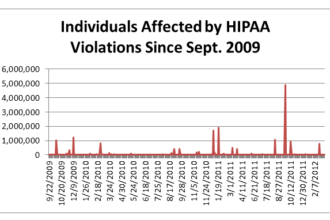First published on MedCityNews.com. One year into a research partnership with Cleveland Clinic, IBM and its famed supercomputing software Watson are making headway on helping clinicians with two great healthcare challenges: using electronic health data to its full potential and making the most informed diagnosis.
The former is taking shape in a project called Watson EMR Assistant, which combines de-identified EMR data from the Clinic with Watson’s natural language processing and machine-learning capabilities. The goal is to help physicians generate a deeper understanding of data captured in electronic medical records.
Eric Brown, director of Watson Technologies at IBM Research, said that current applications of Watson are focused on its ability to turn unstructured clinical notes into structured data, but there are many other sources of data that could be incorporated into its analysis. “Watson has been used to analyze the entire record and then identify the important problems that ought to appear on (a) problem list,” he said at the Medical Innovation Summit last week. Then it can drill down into the record and create customized views of the record based on those problems.
The second project, called WatsonPaths, is a collaborative learning tool that’s helping medical students at Lerner College of Medicine make use of decades of medical research to guide their clinical decisions.
“While humans can reason and think very deeply, they struggle to memorize the encyclopedia or memorize the medical literature,” Brown said. “Computers, however, are very good at reading lots of literature; they struggle to understand that.”
WatsonPaths applies its stored medical research to complex care scenarios. It can break down scenarios into various important factors, to which it then applies its question-answering smarts and generates most- and least-likely solutions to those scenarios. The interface also shows students how Watson arrived at certain conclusions and allows them to provide feedback on its reasoning process.
“An unfortunate comment made to me in medical school was that I better keep my library card handy because 90 percent of what I was going to learn was going to be irrelevant to what my practice in medicine would be, and in fact that is the case,” said Dr. James Young, executive dean at Lerner. “How we learn moving through our careers and taking care of any given patient can be a mystery, but having a tool like this can really solve a lot of problems.”
IBM’s Brown said that these are just some of the ways Watson is being developed for medical use. IBM is also developing an analytics platform that would combine human genome data with medical literature to guide cancer treatment. In another IBM Research project with radiologists at University of Maryland’s School of Medicine, it’s working on a solution that could analyze diagnostic images along with background textual information to come up with a correct answer or diagnosis.
On the commercial end, Watson has also gone to work at Memorial Sloan-Kettering Cancer Center, MD Anderson Cancer Center and North Carolina Health System UNC Health Care.
The goal, though, is not to replace physicians with computers. “I think Watson can become the most ‘knowledgeable’ physician, if you will, but I’m not sure how much wisdom can be programmed in,” Young reiterated. “The savvy clinician will be able to use it as a tool, and a tool is something different than a wise person making decisions with the patient.”







